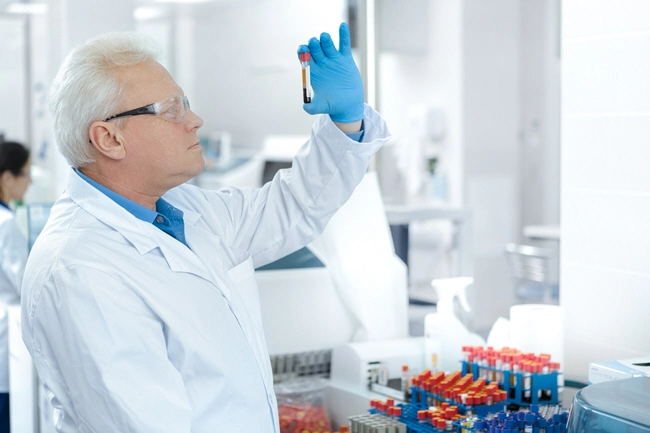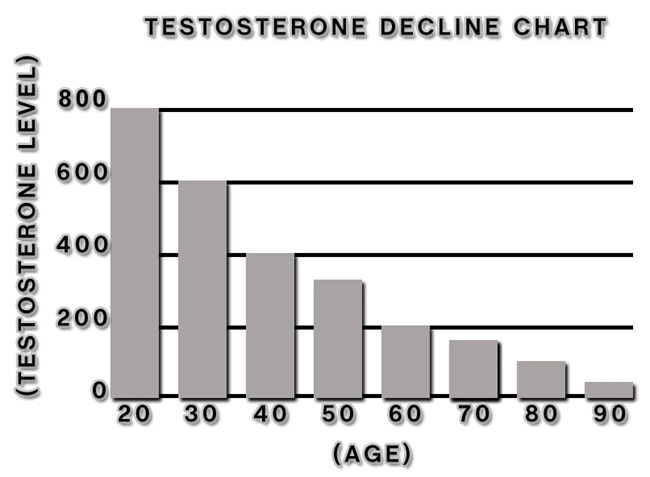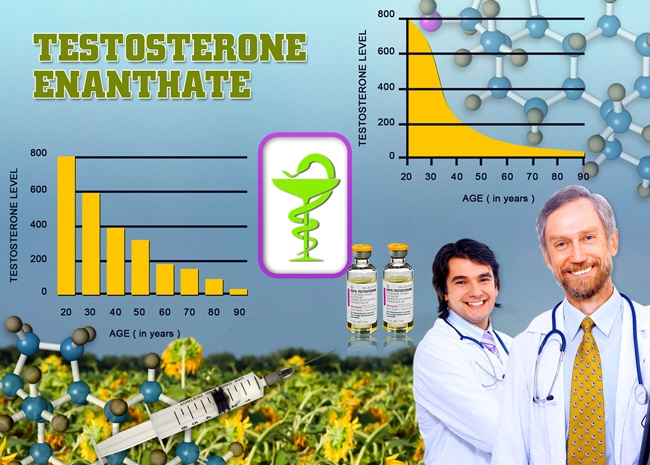
Video Link: https://vimeo.com/272035089
Video Download: Click Here To Download Video
Video Stream: Click Here To Stream Video
Video Link: https://vimeo.com/272035037
Video Download: Click Here To Download Video
Video Stream: Click Here To Stream Video
Video Link: https://vimeo.com/272035014
Video Download: Click Here To Download Video
Video Stream: Click Here To Stream Video
Hormone Replacement Therapy > Testosterone Therapy
Testosterone is the primary male hormone that maintains muscle mass and strength, fat distribution, bone mass, sperm production, sex drive, and potency. Testosterone is considered to be the "male hormone."
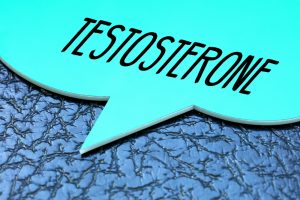 Testosterone: A "male hormone" -- a sex hormone produced by the testes that encourage the development of male sexual characteristics, stimulates the activity of the male secondary sex characteristics, penis growth, muscle development, and masculine features.
Testosterone: A "male hormone" -- a sex hormone produced by the testes that encourage the development of male sexual characteristics, stimulates the activity of the male secondary sex characteristics, penis growth, muscle development, and masculine features.
Chemically, testosterone is 17-beta-hydroxy-4-androstane-3-one.
Testosterone is the most potent of the naturally occurring androgens. The androgens in general also cause the development of male sex characteristics, such as a deep voice and a beard. They also strengthen muscle tone and bone mass.
High levels of testosterone appear to promote good health in men, for example, lowering the risks of high blood pressure and heart attack.
High testosterone levels also correlate with risky behavior, however, including increased aggressiveness and smoking, which may cancel out these health benefits.
Testosterone therapy may be given to treat medical conditions, including female (but not male) breast cancer, hypogonadism (low gonadal function) in the male, cryptorchism (no descent of the testis into the scrotum), and menorrhagia (irregular periods).
Testosterone is the primary androgenic hormone and is responsible for healthy growth and development of male sex organs and maintenance of secondary sex characteristics.
Pre-pubertal hypogonadism is characterized by infantile genitalia and lack of virilization, while the development of hypogonadism after puberty frequently results in complaints such as diminished libido, erectile dysfunction, infertility, gynecomastia, impaired masculinization, changes in body composition, reductions in body and facial hair, and osteoporosis.
Hypogonadal men also report levels of anger, confusion, depression, and fatigue that are significantly higher than those reported in eugonadal men (men with high testosterone).
Evaluation of potential candidates for Testosterone Replacement Therapy (TRT) should include a complete medical history and hormonal screening.
Measure total serum testosterone in the morning.
When the serum testosterone level is low, and Luteinizing Hormone (LH) is elevated, Testosterone Replacement Therapy (TRT) is warranted.
Patients with low serum LH and testosterone levels need an imaging study of their pituitary and may require Endocrinologic consultation.
Testosterone Replacement Therapy
Testosterone is a male hormone produced by the testes and responsible for building and maintaining male sex characteristics.
The testes are the male 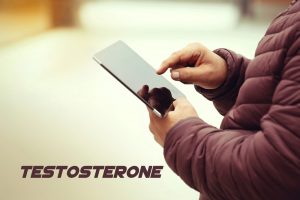 reproductive gland.
reproductive gland.
Testosterone is the primary androgenic hormone made by the testes in response to luteinizing hormones from the pituitary gland.
Testosterone hormones promote the development of adult male characteristics, including deep voice, healthy muscle and bone mass, and sperm.
High levels of testosterone promote good health in men and lower the risk of high blood pressure and heart attack.
Testosterone also stimulates metabolism and the burning of body fat.
During puberty, testosterone levels are at a lifetime peak. These levels begin to decline at the age of 23.
Testosterone Therapy Benefits
- Increased muscle strength and mass
- Enhanced sexual potency and frequency
- Lowers cholesterol levels
- Increased energy, stamina and endurance
- Improved mental function
- Improves mood and feeling of well-being
- Protects against heart disease
- Improved concentration and focus
Testosterone Deficiency Symptoms
- Reduced libido
- Fatigue or a decrease in physical stamina
- Difficulty in maintaining erections
- Memory impairment
- Depression and anxiety
- Increased risk of heart disease
- Reduced muscle mass
- Weight gain
PHARMACOLOGICAL CLASSIFICATIONS
Category A 21.7 (Male sex hormones)
PHARMACOLOGICAL ACTION
In the eunuch and eunuchoid male, androgens act to stimulate and maintain the secondary sexual characteristics associated with the adult male.
Androgens influence closure of the epiphyseal lines in men and some females. Administration of androgens reduces urinary excretion of nitrogen, sodium, potassium, chloride, phosphorus, and water.
 INDICATIONS
INDICATIONS
Based on a review completed by the National Academy of Sciences, National Research Council, and other information, the FDA has classified the signs for particular androgens as follows:
Active - In the male:
* Eunuchism, eunuchoidism, deficiency after castration.
* Male climacteric symptoms when these are secondary to androgen deficiency.
* Oligospermia.
Probably Effective -- In the Female or Male:
* Postmenopausal or senile osteoporosis.
Androgens are without value as primary therapy but may be of value as adjunctive therapy.
Equal or more significant consideration should be given to diet, calcium balance, physiotherapy, and useful general health-promoting measures.
The final classification of the less-than-effective indications requires further investigation.
CONTRA-INDICATIONS
* Carcinoma of the male breast
* Carcinoma is known or suspected of the prostate
* Cardiac, hepatic or renal decompensation
* Hypercalcaemia
* Liver function impairment
* Prepubertal males
* Pregnancy
DOSAGE AND DIRECTIONS FOR USE
TESTOSTERONE is for intramuscular use only.
The dosage will vary depending on the individual, the condition being treated, its severity, and prior androgen therapy.
Because of the protracted action of TESTOSTERONE injections, more frequently than every two weeks are seldom required.
Eunuchism; Eunuchoidism -- For complete replacement in eunuchs and eunuchoid patients, the usual dose of DEPO-TESTOSTERONE is 200 to 400 mg injected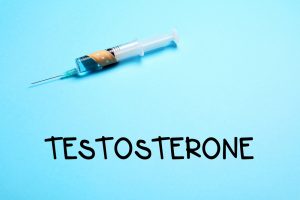 at intervals of three to four weeks.
at intervals of three to four weeks.
It is usually preferable to begin treatment with full therapeutic doses, which are later adjusted to individual requirements.
Priapism is a sign of excessive dosage and is an indication for the temporary withdrawal of androgen therapy.
Impotence due to Testicular Deficiency; Male Climacteric -- DEPO-TESTOSTERONE may be given every three to four weeks in doses ranging from 200 to 400 mg.
Oligospermia -- To stimulate spermatogenesis when trial androgen therapy is indicated in subfertile males with oligospermia, recommended dosage of DEPO-TESTOSTERONE is: (1) 100 to 200 mg every three to six weeks for development and maintenance of testicular function; (2) 200 mg each week for six to ten weeks for suppression which may then be followed by rebound spermatogenesis following discontinuance of the injection.
Anabolic Effect; Osteoporosis -- The dosage of DEPO-TESTOSTERONE for anabolic effect should be adjusted according to age, sex, and the condition of the individual patient.
In the majority of cases, the dose will range from 200 to 400 mg injected every three to four weeks. Also, an adequate diet should be provided, and prolonged immobilization avoided whenever possible.
SIDE EFFECTS AND SPECIAL PRECAUTIONS
Hypercalcemia may occur in immobilized patients, and in patients with breast cancer.
In patients with cancer, this may indicate the progression of bony metastasis.
If this occurs, the drug should be discontinued.
Testosterone propionate must not be used interchangeably with testosterone cypionate, enanthate, or phenylacetate due to the difference in duration of action.
Do not give intravenously.
Oversee female patients for signs of virilization.
Some effects, such as voice changes may not be reversible when the drug therapy stops.
Due to the prolonged action of this drug, it should be administered with caution to patients with organic heart disease of debilitation.
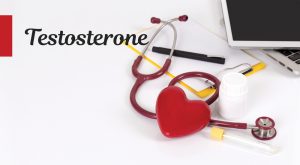 Patients with cardiac, renal, or hepatic disorder may retain sodium and water, thus forming edema.
Patients with cardiac, renal, or hepatic disorder may retain sodium and water, thus forming edema.
Priapism or excessive sexual stimulation may develop.
Oligospermia and reduced ejaculatory volume may occur after prolonged administration or excessive dosage.
Hypersensitivity and gynecomastia may occur.
When any of these effects appear, stop the use of the androgen, use a lower dose if restarted.
The serum protein-bound iodine (PBI) may increase during androgen therapy without clinical significance.
* Acne Priapism
* Decreased ejaculatory volume
* Hypercalcaemia (especially in immobile patients Gynecomastia and those with metastatic breast carcinoma)
* Oedema
* Local irritation
* Hypersensitivity, including skin manifestations and anaphylactoid reactions
* Virilization in females
KNOWN SYMPTOMS OF OVERDOSAGE AND PARTICULARS OF ITS TREATMENT
Treatment should be symptomatic and supportive.
IDENTIFICATION
A pale yellow oily solution.
TESTOSTERONE 100 mg or 200mg is available in 10 mL vials.
STORAGE INSTRUCTIONS
Store at room temperature (15°C - 30°C) Keep out of reach of children.
Low Testosterone Could Kill You
Low Levels of Male Hormone May Be More Dangerous Than Previously Thought
Low testosterone may lead to a higher risk of death, according to a study presented Tuesday at the annual meeting of the Endocrine Society in Toronto.
New research suggests that men with low testosterone levels may be at increased risk of early death.
Men with low testosterone had a 33 per cent greater mortality risk over their next 18 years of life compared with men who had higher testosterone, according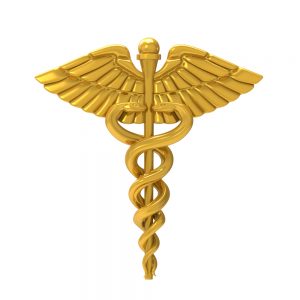 to the study conducted by Dr. Elizabeth Barrett-Connor and colleagues at the University of California at San Diego.
to the study conducted by Dr. Elizabeth Barrett-Connor and colleagues at the University of California at San Diego.
"It's exhilarating and potentially a groundbreaking study," said Barrett-Connor. "But it needs to be confirmed."
The study tracked nearly 800 men, 50 to 91 years old, living in California.
Their testosterone level was measured at the beginning of the survey, and their health tracked over the next two decades.
How Low is Low?
Testosterone typically declines as men get older.
However, a precise definition of "low" testosterone does not yet exist.
"No one knows what low is," said Dr. Joel Finkelstein, endocrinologist and associate professor at Harvard Medical School.
"The study authors defined it at 250 [nanograms per deciliter], which is a definition, but no one has figured out what low is."
Barrett-Connor and her colleagues found that nearly 30 per cent of the men they studied met their criterion score of 250 or lower for low testosterone.
They noted that many men with this definition of low testosterone were "healthy men in the community who would not know that they had low testosterone."
Men With Hot Flashes
Symptoms of low testosterone depend on how low the level is.
At the lowest levels, men will have hot flashes, much like those experienced by women during menopause.
"At levels not quite that small, men have diminished libido, erectile dysfunction, fatigue and physiological changes many will not immediately recognize," Finkelstein said, adding that these could include loss of strength, decrease in bone density and decreased muscle mass.
Testosterone Depo
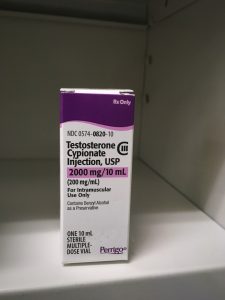 Testosterone Depo is the most popular and most used testosterone.
Testosterone Depo is the most popular and most used testosterone.
Cypionate, like Enanthate (another form of testosterone), is an oil-dissolved injectable form of testosterone with strong androgenic and anabolic effects.
It aromatizes quite quickly, which means that the conversion rate to estrogen, similar to Enanthate's, is relatively high.
Several individuals think that Cypionate stores more water in the body than Enanthate does. Testosterone Cypionate can be combined with many steroids and thus making it an excellent mass steroid.
This oil-based injectable form of testosterone can cause a marked disturbance in the body's endogenous production of testosterone if not carefully monitored and cycled.
There are many claims that this drug produces dramatic size and strength increases, yet some studies disprove any power gain. It can be combined with some different steroids to yield more significant results.
Cypionate is produced domestically under the brand name Depo-Testosterone, and other manufacturers provide it under generic names.
Testosterone Enanthate
DELATESTRYL (Testosterone Enanthate Injection) provides testosterone enanthate, a derivative of the primary endogenous androgen testosterone, for intramuscular administration.
In their active form, androgens have a 17-beta-hydroxy group.
Esterification of the 17-beta-hydroxy group increases the duration of action of testosterone; hydrolysis to free testosterone occurs.
Each mL of sterile, colorless to pale yellow solution provides 200 mg testosterone enanthate in sesame oil with 5 mg chlorobutanol (chloral derivative) as a preservative.
Testosterone Propionate
Testosterone Propionate is a common oil-based injectable Testosterone.
The added Propionate extends the activity of the Testosterone, but it is still comparatively much faster acting than other Testosterone esters such as Cypionate and Enanthate.
While Cypionate and Enanthate are injected weekly, 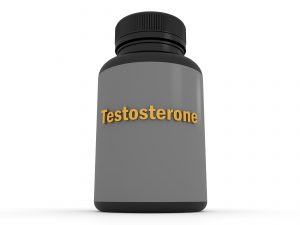 Propionate is most commonly injected at least every third day to keep blood levels steady.
Propionate is most commonly injected at least every third day to keep blood levels steady.
For strength and muscle mass gains, this drug is quite useful.
With Propionate, androgenic side effects seem somewhat less pronounced than with the other Testosterones, probably because blood levels do not build up as high.
Users often report less gyno trouble, lower water retention and commonly claim to be harder on Propionate than with the others.
This, however, is still a Testosterone and, as with all Testosterone products, androgenic side effects are unavoidable.
It should also be noted that Propionate is often an excruciating injection. Users very regularly report swelling and noticeable pain for days after a shot.
Nandrolone Decanoate
Known commonly as "Deca," this androgenic/anabolic steroid (AAS) is easy on the liver and promotes good size and strength gains while reducing body fat.
This drug is unique in that 5a -reductase, the enzyme which converts testosterone to the more-potent DHT, actually converts Nandrolone to a less-potent compound.
Therefore, this is somewhat deactivated in the skin, scalp, and prostate, and these tissues experience an effectively-lower androgen level than the rest of the body.
For those particularly concerned with less activity in the scalp, skin, and prostate, Deca is an excellent choice for androgen therapy.
Its effectiveness at the androgen receptor of muscle tissue is better and binds better than testosterone.
However, it gives only about half the muscle-building results per milligram.
This is due 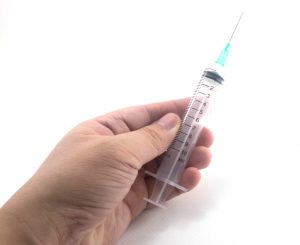 to it being less effective or entirely ineffective in non-AR-mediated mechanisms for muscle growth.
to it being less effective or entirely ineffective in non-AR-mediated mechanisms for muscle growth.
It also appears less effective in activity on nerve cells, specifically on the nerve cells responsible for erectile function.
Use of Deca as the sole AAS often results in complete inability to perform sexually.
These problems can be solved by combining it with a drug that supplies the missing activity: e.g., testosterone.
Nandrolone is proven to be a progestin.
This is important in bodybuilding because moderate Deca-only use lowers estrogen levels as a consequence of reducing natural testosterone levels -- thus allowing the aromatase enzyme less substrate to work with.
Deca nonetheless can cause gynecomastia in some individuals.
To some extent, Nandrolone aromatizes to estrogen, and it does not appear that this can be entirely blocked by use of aromatase inhibitors -- indeed, aromatase may not be involved at all in this process (there is no evidence in humans that such occurs) with the enzyme CYP 2C11 being the more likely candidate for this activity.
Cytadren, an aromatase inhibitor, has not been found useful in avoiding aromatization of Nandrolone.
The long half-life of Deca-Durabolin makes it unsuited for short alternating cycles, but suitable for more traditional periods, with a built-in self-tapering effect in the weeks following the last injection.
Therapeutic action: Testosterone analog; promotes body tissue–building processes and reverses catabolic or tissue-depleting processes; increases Hgb and red cell mass.
How Taken -- Administration by deep inter-muscular Injection
Possible Side Effects -- Water retention (edema), gynecomastia, numbness, inhibited natural testosterone production, elevated blood pressure, high blood lipid profiles, accelerated hair loss, aggression, moodiness, acne.
Contraindications/cautions -- Known sensitivity to nandrolone or anabolic steroids; prostate or breast cancer in males; benign prostatic hypertrophy; breast cancer (females); pituitary insufficiency; MI (contraindicated because of effects on cholesterol); nephrosis; liver disease; hypercalcemia; pregnancy; lactation.
Warnings/Precautions -- Your doctor should check your progress at regular visits and should check liver profiles at least twice a year.
Instructions to follow for your safety:
This drug can only be given intramuscularly (IM); Mark calendar indicating days to return for injection.
• The following side effects may occur: nausea, vomiting, diarrhea, burning of the tongue (small, frequent meals); body hair growth, baldness, deepening of the voice, loss of libido, impotence; (most effects are reversible); excitation, confusion, insomnia (avoid driving, performing tasks that require alertness); swelling of the ankles, fingers (request medication).
• This drug is associated with severe fetal effects; do not use the drug during pregnancy; use of barrier contraceptives is advised.
• Report ankle swelling, skin color changes, severe nausea, vomiting, hoarseness, body hair growth, deepening of the voice, acne, menstrual irregularities (women).
(women).
• Tell any healthcare provider who is taking care of you that you are on this drug.
For diabetic patients:
This medicine may affect blood sugar levels. If you notice a change in the results of your blood or urine sugar tests, you should check with your doctor for further analysis.
Missed Dose -- Do not double up on medication.
Missed doses should be added to the end of the cycle.
Pregnancy -- Anabolic steroids are not recommended during pregnancy. They may cause the development of male features in the female fetus and premature growth and development of masculine characteristics in the male fetus. Be sure you have discussed this with your doctor.
Storage -- Store in a cool, dry place. Keep the liquid form of this medicine from freezing.
Clinically meaningful interactions
Drug-drug:
• Potentiation of oral anticoagulants with anabolic steroids
• Decreased need for insulin, oral hypoglycemic agents with anabolic steroids
Drug-lab test
• Altered glucose tolerance tests
• A decrease in thyroid function tests, which may persist for 2–3 wk after stopping therapy
• Increased creatinine, creatinine clearance, which may last for two weeks after treatment
Nursing considerations -- Assessment
History: Sensitivity to nandrolone or anabolic steroids; prostate or breast cancer in males; benign prostatic hypertrophy; breast cancer in females; pituitary insufficiency; nephrosis; liver disease; hypercalcemia; pregnancy; lactation
Physical: Skin color, texture; hair distribution pattern; effect, orientation; abdominal exam, liver evaluation; serum electrolytes, serum cholesterol levels, glucose tolerance tests, thyroid function tests, long-bone x-ray (in children)
 Interventions
Interventions
• Ensure that the patient is not pregnant before administering; advise the use of barrier contraceptives during therapy.
• Inject nandrolone deeply into the gluteal muscle.
• Intermittent administration decreases adverse effects.
• Monitor impact on children with long-bone x-rays every 3–6 mo; discontinue drug well before the bone age reaches the norm for the patient's chronologic age.
• Monitor patient for edema; arrange for diuretic therapy.
• Monitor liver function, serum electrolytes, and consult with a physician for appropriate corrective measures.
• Measure cholesterol levels periodically in patients with high risk for CAD.
• Monitor diabetic patients closely because glucose tolerance may change; adjustments may be needed in insulin, oral hypoglycemic dosage, and diet.
Drug-specific teaching points
• This drug can only be given IM; Mark calendar indicating days to return for injection.
The following side effects may occur:
Nausea, vomiting, diarrhea, burning of the tongue; body hair growth, baldness, deepening of the voice, loss of libido, impotence; (most effects are reversible); excitation, confusion, insomnia (avoid driving, performing tasks that require alertness); swelling of the ankles, fingers (request medication).
• This drug is associated with severe fetal effects; do not use the drug during pregnancy; use of barrier contraceptives is advised.
• Diabetic patients — monitor urine sugar carefully because glucose tolerance may change. Report any abnormalities to a physician so that corrective action can be taken.
• Report ankle swelling, skin color changes, severe nausea, vomiting, hoarseness, body hair growth, deepening of the voice, acne, menstrual irregularities (women).
Reference
Risks of testosterone replacement therapy in men
Contact Us Today For A Free Consultation
Dear Patient,
Once you have completing the above contact form, for security purposes and confirmation, please confirm your information by calling us.
Please call now: 1-800-380-5339.
Welcoming You To Our Clinic, Professor Tom Henderson.

- LabCorp Announces a Change to the Testosterone Reference Range [Last Updated On: April 16th, 2025] [Originally Added On: June 23rd, 2019]
- Soy: Does it Lower Testosterone? [Last Updated On: October 18th, 2024] [Originally Added On: August 30th, 2020]
- Testosterone Treatments May Successfully Reverse Type-2 Diabetes in Some Men [Last Updated On: April 15th, 2025] [Originally Added On: November 13th, 2020]
- Testosterone Replacement Therapy (TRT) May Prevent Heart Attacks and Diabetes [Last Updated On: April 21st, 2025] [Originally Added On: November 17th, 2020]
- Did You Know? Recent Studies Have Confirmed the Link Between Low Testosterone (“Low-T”) and Depression. [Last Updated On: April 17th, 2025] [Originally Added On: January 10th, 2021]
- New Study Finds Testosterone Does Not Increase Your Heart Attack Risk [Last Updated On: April 14th, 2025] [Originally Added On: January 11th, 2021]
- The Great Testosterone Debate [Last Updated On: April 20th, 2025] [Originally Added On: January 14th, 2021]
- Testosterone Replacement Therapy Lowers Heart Attack Risk [Last Updated On: April 19th, 2025] [Originally Added On: January 18th, 2021]
- New Study Says: The Benefits of Testosterone Replacement Therapy Outweigh The Risks [Last Updated On: April 22nd, 2025] [Originally Added On: January 19th, 2021]
- Male Menopause. Fact or Fiction ? [Last Updated On: April 23rd, 2025] [Originally Added On: January 20th, 2021]
- Testosterone: How Much Do You Really Know About This Masculine Hormone? [Last Updated On: October 6th, 2024] [Originally Added On: February 9th, 2021]
- Low-T: What are healthy levels of Testosterone and why is it difficult to measure? [Last Updated On: September 11th, 2025] [Originally Added On: April 3rd, 2021]
- Testosterone Therapy May Be Good for the Heart if You Have Low-T [Last Updated On: May 3rd, 2025] [Originally Added On: July 21st, 2021]
- A Recent Study Concludes: Testosterone DOES NOT Cause Prostate Cancer [Last Updated On: September 14th, 2025] [Originally Added On: August 16th, 2021]
- In the Battle Against Aging, When do the Risks Outweigh the Rewards? [Last Updated On: April 4th, 2025] [Originally Added On: August 18th, 2021]
- New Study Concludes: Boosting Testosterone Levels Lowers Men's Death Risk [Last Updated On: May 11th, 2025] [Originally Added On: August 20th, 2021]
- Testosterone Replacement Therapy Slows Prostate Cancer! [Last Updated On: April 2nd, 2025] [Originally Added On: September 13th, 2021]
- Research proves that Testosterone Therapy Boosts Fertility! [Last Updated On: April 5th, 2025] [Originally Added On: September 26th, 2021]
- Free Testosterone and Sex Hormone-Binding Globulin [Last Updated On: April 6th, 2025] [Originally Added On: October 15th, 2021]
- Testosterone Does Not Cause Heart Attacks [Last Updated On: April 7th, 2025] [Originally Added On: October 15th, 2021]
- Testosterone and Women [Last Updated On: April 8th, 2025] [Originally Added On: October 15th, 2021]
- Testosterone and Metabolic Syndrome [Last Updated On: April 3rd, 2025] [Originally Added On: October 15th, 2021]
- Testosterone and Disease Prevention [Last Updated On: March 31st, 2025] [Originally Added On: October 15th, 2021]
- Judge Vacates $140 Million Verdict in Testosterone Lawsuit [Last Updated On: April 1st, 2025] [Originally Added On: October 15th, 2021]
- Testosterone and Estrogen [Last Updated On: April 9th, 2025] [Originally Added On: October 16th, 2021]
- Testosterone and Aging [Last Updated On: April 10th, 2025] [Originally Added On: October 16th, 2021]
- Testosterone Replacement Therapy (TRT) Benefits [Last Updated On: April 11th, 2025] [Originally Added On: October 16th, 2021]
- Testosterone and Male Menopause [Last Updated On: March 30th, 2025] [Originally Added On: October 16th, 2021]
- Testosterone Battles Obesity [Last Updated On: March 29th, 2025] [Originally Added On: October 16th, 2021]
- Why You Need Testosterone Replacement Therapy [Last Updated On: May 14th, 2025] [Originally Added On: October 16th, 2021]
- Testosterone FAQ's [Last Updated On: May 13th, 2025] [Originally Added On: October 25th, 2021]
- How Testosterone Impacts Sexual Preferences In Men and Women [Last Updated On: March 28th, 2025] [Originally Added On: October 30th, 2021]
- Growth Hormone and The Thyroid Gland [Last Updated On: April 24th, 2025] [Originally Added On: November 19th, 2021]
- How Does Masturbation Affect Testosterone Levels? Exploring the Science [Last Updated On: May 24th, 2025] [Originally Added On: March 27th, 2022]
- Testosterone Therapy Increasingly Used to Help Men Take Control of Aging [Last Updated On: May 25th, 2025] [Originally Added On: May 30th, 2022]
- The many benefits of Testosterone Replacement Therapy (TRT) [Last Updated On: October 1st, 2024] [Originally Added On: June 13th, 2022]
- Tlando Testosterone - A Brand New Way to Treat Low-T Safely with a Testosterone Pill [Last Updated On: May 28th, 2025] [Originally Added On: July 12th, 2022]
- Safe Tlando Testosterone Changes Landscape of Low-T Therapy [Last Updated On: May 30th, 2025] [Originally Added On: August 15th, 2022]
- Systems to Monitor Testosterone Replacement Therapy (TRT) [Last Updated On: September 11th, 2024] [Originally Added On: September 21st, 2022]
- Testosterone May Help You Keep Your Job (Or Find Another) [Last Updated On: June 12th, 2025] [Originally Added On: October 4th, 2022]
- Toxic Chemicals are Killing your testosterone…And your Manhood! [Last Updated On: October 28th, 2024] [Originally Added On: October 10th, 2022]
- A new study reveals that Testosterone improves body composition in men with low testosterone! [Last Updated On: September 21st, 2024] [Originally Added On: October 17th, 2022]
- A former Mr. Olympia speaks about testosterone [Last Updated On: September 9th, 2024] [Originally Added On: November 8th, 2022]
- Testosterone Blockers Thwart Melanoma [Last Updated On: June 9th, 2025] [Originally Added On: December 11th, 2022]
